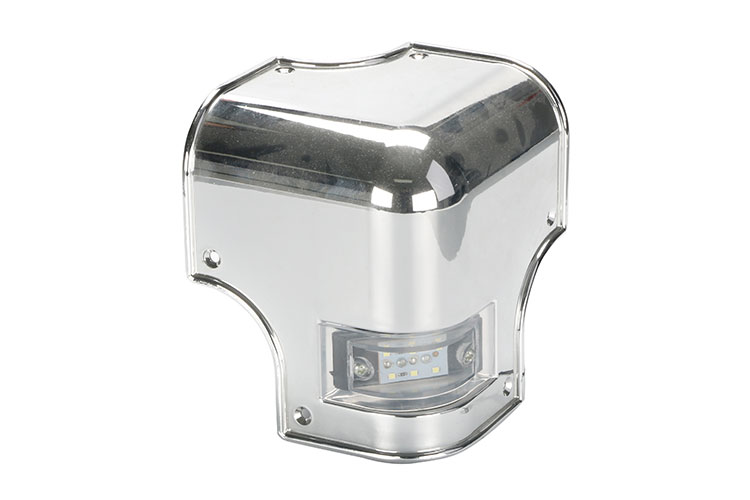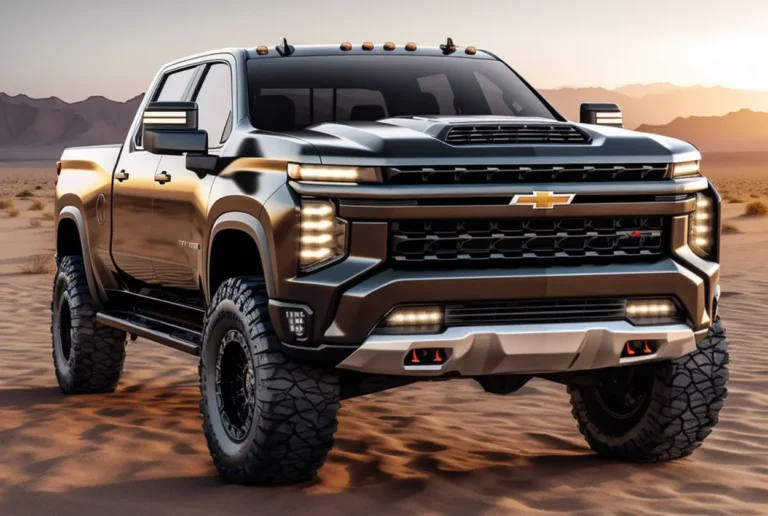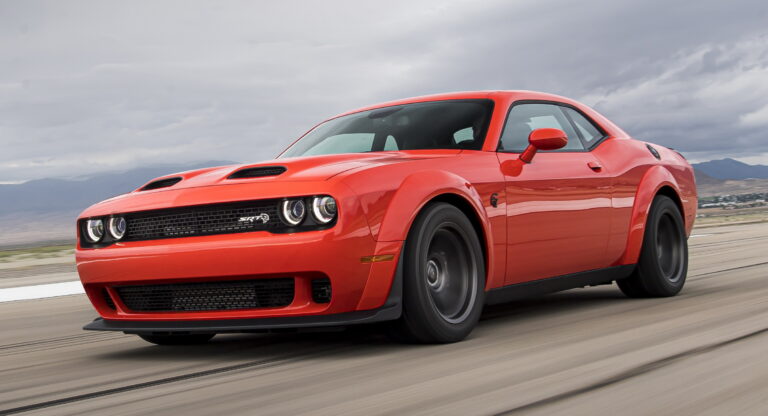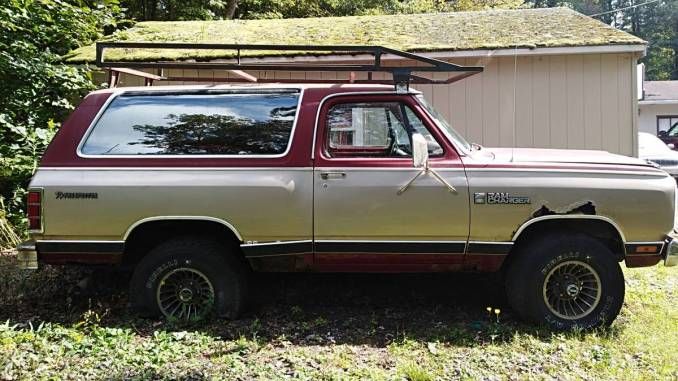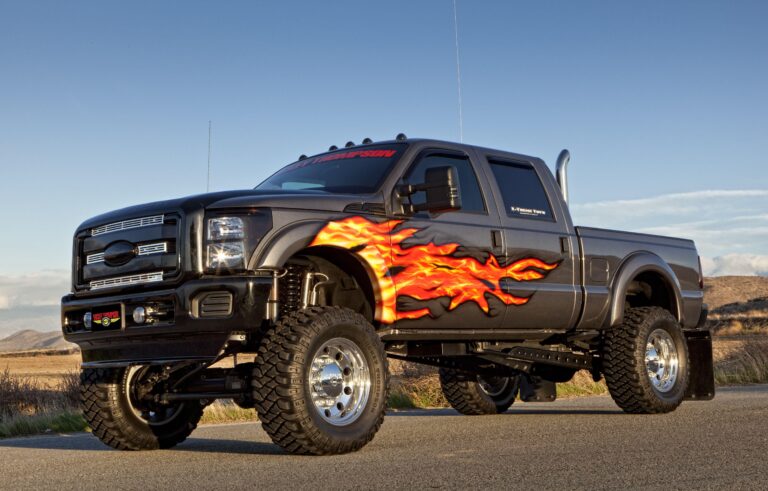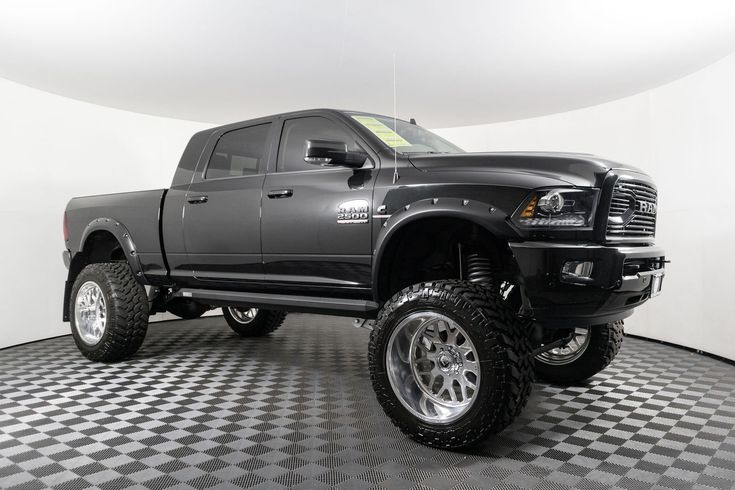Commercial Trucks For Sale In Houston: Your Comprehensive Guide to Driving Business Forward
Commercial Trucks For Sale In Houston: Your Comprehensive Guide to Driving Business Forward cars.truckstrend.com
Houston, Texas, a sprawling metropolis renowned for its energy industry, bustling port, and strategic location at the crossroads of major interstate highways, stands as a pivotal hub for commerce and logistics in the United States. For businesses and entrepreneurs operating within this dynamic economic landscape, reliable commercial trucks are not just vehicles; they are the lifeblood of operations, the critical link between suppliers and customers, and the engine driving growth. Whether you’re a burgeoning startup needing a single delivery van or an established logistics giant expanding your fleet of heavy-duty tractor-trailers, understanding the market for commercial trucks for sale in Houston is paramount. This comprehensive guide will navigate the diverse world of commercial vehicle acquisition in the Bayou City, offering insights, practical advice, and essential considerations to help you make an informed decision.
Why Houston is a Prime Market for Commercial Trucks
Commercial Trucks For Sale In Houston: Your Comprehensive Guide to Driving Business Forward
Houston’s unique economic and geographical attributes make it an exceptionally vibrant market for commercial vehicles:
- Strategic Location: Positioned at the convergence of I-10 (east-west), I-45 (north-south), and US-59/I-69 (southwest-northeast), Houston serves as a critical distribution nexus for goods moving across the country and to and from Mexico.
- Port of Houston: As one of the busiest ports in the U.S., the Port of Houston is a massive driver of freight movement, necessitating a constant demand for drayage trucks, container haulers, and various support vehicles.
- Diverse Economy: Beyond energy, Houston boasts thriving sectors in manufacturing, healthcare, construction, retail, and technology. Each industry has specific transportation needs, from heavy equipment haulers for construction sites to refrigerated trucks for food distribution and cargo vans for last-mile delivery.
- Population Growth: Houston’s continuous population boom fuels demand for housing, infrastructure, consumer goods, and services, all of which rely heavily on efficient commercial trucking.
- Established Infrastructure: The city has a robust network of truck stops, service centers, and dealerships, making it convenient for truck owners to maintain their vehicles and access necessary parts and services.
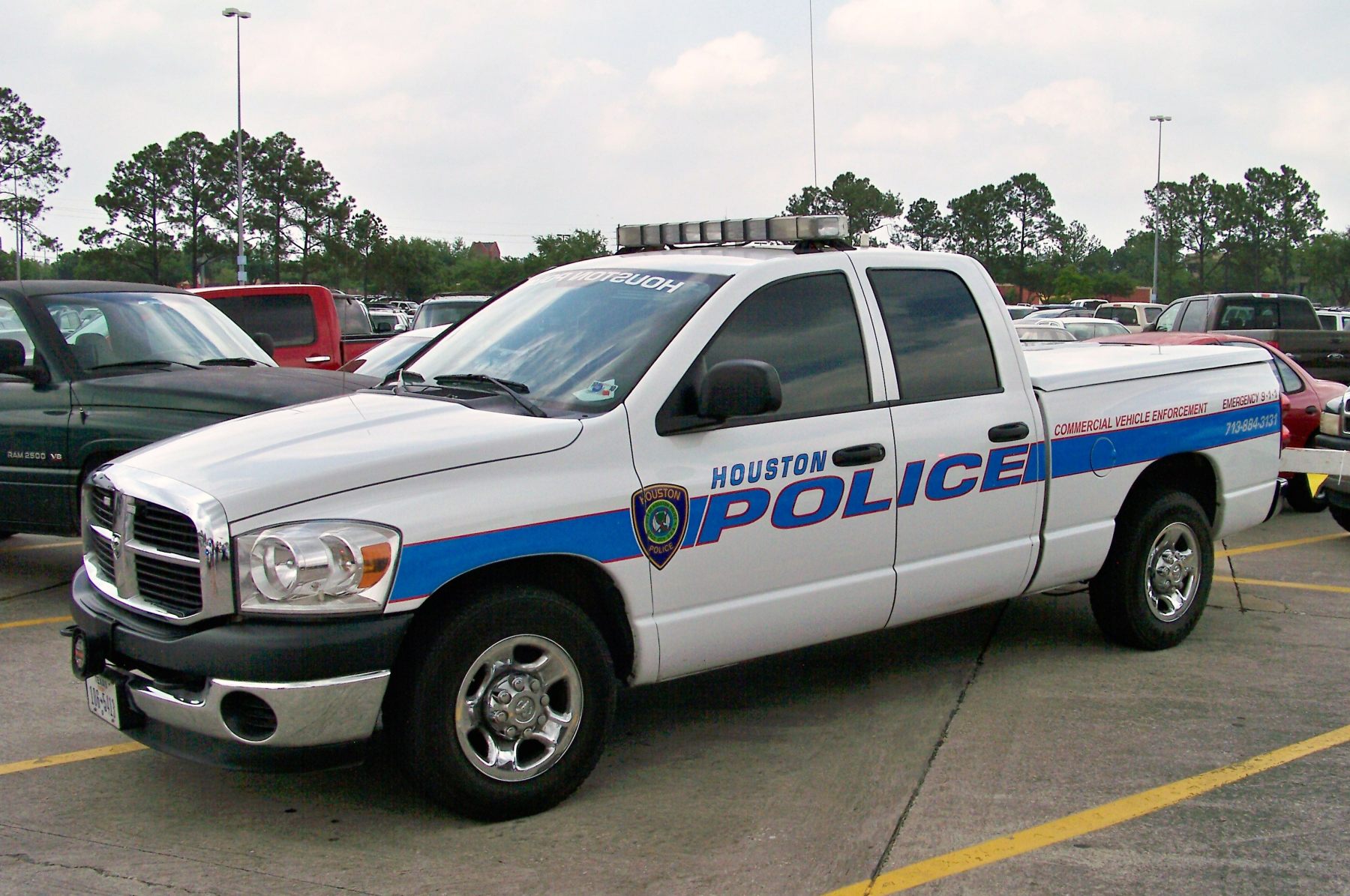
This confluence of factors creates a dynamic environment where businesses consistently seek to acquire, upgrade, or expand their commercial truck fleets.
Types of Commercial Trucks Available in Houston
The Houston market offers an extensive array of commercial trucks, catering to virtually every business need. Understanding the categories can help narrow your search:
- Heavy-Duty Trucks: These are the workhorses of long-haul and heavy-load transportation.

- Semi-Trucks/Tractor-Trailers: The most recognizable commercial trucks, used for hauling large trailers over long distances. Options include day cabs for local hauls and sleeper cabs for over-the-road operations.
- Dump Trucks: Essential for construction, landscaping, and aggregate transport, designed to carry and offload loose materials.
- Concrete Mixers: Specialized trucks for transporting and mixing concrete to construction sites.
- Flatbeds: Ideal for transporting oversized or oddly shaped cargo, machinery, and construction materials.
- Medium-Duty Trucks: Versatile vehicles suited for local deliveries, specialized services, and medium-haul transport.
- Box Trucks/Straight Trucks: Commonly used for local deliveries, moving services, and general freight, with the cargo area integrated with the chassis.
- Refrigerated (Reefer) Trucks: Equipped with refrigeration units to transport perishable goods like food, pharmaceuticals, and flowers.
- Stake Trucks: Feature an open bed with removable stakes, popular for landscaping, building materials, and equipment transport.
- Utility/Service Trucks: Designed with compartments and specialized equipment for field service technicians, electricians, plumbers, and telecommunications companies.
- Light-Duty Commercial Vehicles: Smaller, more nimble vehicles perfect for urban deliveries, service calls, and small businesses.
- Cargo Vans: Ideal for last-mile delivery, courier services, and mobile workshops for various trades.
- Commercial Pickup Trucks: Heavy-duty variants of popular pickups, often upfitted for specific tasks like towing, snow plowing (less common in Houston), or carrying tools and equipment for contractors.
- Specialty Vehicles: Beyond these general categories, Houston’s market also includes tow trucks, waste management trucks, crane trucks, tanker trucks, and more, each serving niche industrial needs.
Both new and used options are readily available, offering flexibility in budget and features.
Where to Find Commercial Trucks For Sale in Houston
The vastness of the Houston market means multiple avenues for finding your next commercial truck:
- Authorized Dealerships (New & Used): These are primary sources for new trucks and certified used vehicles. Major brands like Freightliner, Peterbilt, Kenworth, Volvo, Mack, Isuzu, Hino, Ford, Ram, and Chevrolet have strong presences in Houston.
- Pros: Access to the latest models, manufacturer warranties, financing options, and dedicated service departments.
- Cons: Generally higher prices for new vehicles.
- Used Truck Dealerships: Specializing solely in pre-owned commercial vehicles, these dealers often offer a wider variety of makes, models, and price points.
- Pros: More cost-effective options, diverse inventory, potential for quicker acquisition.
- Cons: Warranties may be limited or absent; thorough inspection is crucial.
- Online Marketplaces and Aggregators: Websites like TruckPaper.com, CommercialTruckTrader.com, eBay Motors, and even local platforms like Craigslist and Facebook Marketplace host thousands of listings.
- Pros: Wide reach, easy comparison shopping, ability to filter by specific criteria.
- Cons: Risk of scams, less vetting of sellers, vehicles may be located outside Houston requiring travel for inspection.
- Auctions: Commercial truck auctions (e.g., Ritchie Bros. Auctioneers, IronPlanet) can be excellent places to find deals, especially on fleet liquidations.
- Pros: Potential for significant savings, wide variety of equipment.
- Cons: "As-is" sales, limited opportunity for thorough inspection, competitive bidding.
- Direct from Private Sellers or Businesses: Some companies sell off their older fleet vehicles directly. Look for "for sale" signs, check industry-specific forums, or network within your business community.
Key Considerations When Buying a Commercial Truck in Houston
Acquiring a commercial truck is a significant investment. Careful consideration of several factors will ensure you make the best choice for your business:
- Budget and Financing: Determine your maximum expenditure. Explore financing options (loans, leases) offered by dealerships, banks, or specialized commercial vehicle lenders. Leasing can offer lower monthly payments and tax benefits, while buying provides ownership and equity.
- Application and Capacity Needs: What will the truck primarily be used for? How much weight will it carry? What are the typical distances and terrains? Answering these questions will guide your choice of truck type, engine size, axle configuration, and payload capacity. Overbuying can lead to unnecessary costs, while underbuying can hinder efficiency.
- Maintenance and Service Records: This is paramount, especially for used trucks. A complete service history indicates how well the vehicle has been cared for and can reveal potential issues. Look for evidence of regular oil changes, transmission fluid changes, brake inspections, and major component overhauls.
- Mileage and Engine Hours: High mileage or engine hours (for vehicles that idle frequently, like concrete mixers) indicate more wear and tear. While not always a deal-breaker, they should be factored into the price and expected future maintenance.
- Engine and Drivetrain: Consider engine horsepower and torque relative to your hauling needs. Evaluate fuel type (diesel is standard for heavy-duty, gasoline for some lighter commercial vehicles), transmission type (manual vs. automatic), and axle ratios.
- DOT Compliance and Regulations: Commercial trucks are subject to strict federal and state regulations, including weight limits, emissions standards (especially relevant in Texas), and safety inspections. Ensure the truck you purchase meets all necessary requirements to avoid costly fines and downtime.
- Warranty and After-Sales Support: For new trucks, understand the manufacturer’s warranty. For used trucks, inquire about any remaining manufacturer warranty or dealer-provided warranties. A reputable dealer will also offer robust after-sales service and parts availability.
- Insurance Costs: Commercial truck insurance can be substantial. Obtain quotes before purchasing, as rates vary widely based on truck type, usage, driver history, and coverage limits.
- Total Cost of Ownership (TCO): Look beyond the purchase price. Factor in fuel costs, maintenance, insurance, depreciation, financing interest, and potential downtime. A cheaper truck upfront might be more expensive to operate in the long run.
Tips for a Successful Commercial Truck Purchase
Navigating the commercial truck market can be complex. Here are some actionable tips:
- Define Your Needs Precisely: Before you even start looking, create a detailed list of your operational requirements. This includes cargo type, weight, route characteristics, budget, and desired features.
- Conduct a Thorough Pre-Purchase Inspection (PPI): For any used truck, a PPI by an independent, certified mechanic specializing in commercial vehicles is non-negotiable. This can uncover hidden mechanical issues, structural damage, or deferred maintenance that could save you thousands.
- Test Drive Extensively: Don’t just take it around the block. Drive it under conditions similar to your typical operations (e.g., with a load if possible). Pay attention to engine performance, transmission shifting, brakes, steering, and overall comfort.
- Research Dealers/Sellers: Check online reviews, Better Business Bureau ratings, and industry reputation. A reputable seller is more likely to provide accurate information and stand behind their product.
- Understand Total Cost of Ownership (TCO): As mentioned, factor in all potential costs. Calculate fuel efficiency based on typical loads and routes, and estimate maintenance costs.
- Negotiate Smartly: Don’t be afraid to negotiate the price. Research market values for similar trucks to strengthen your position. Also, inquire about package deals, service contracts, or accessory discounts.
- Review All Paperwork: Carefully examine the title, lien information, bill of sale, warranty documents, and any service agreements. Ensure all details are accurate and that there are no outstanding liens on the vehicle.
Challenges and Solutions in the Houston Commercial Truck Market
While Houston offers a robust market, challenges exist. Understanding them can help you prepare:
- High Upfront Cost: Commercial trucks are expensive.
- Solution: Explore diverse financing options (loans, leases, lines of credit), consider certified used trucks for better value, or look into rent-to-own programs.
- Maintenance Expenses and Downtime: Breakdowns can be costly and disruptive.
- Solution: Prioritize preventative maintenance, invest in extended warranties for critical components, and build a relationship with a reliable service center in Houston.
- Regulatory Compliance: Navigating DOT regulations, emissions standards, and weight limits can be daunting.
- Solution: Stay informed through industry associations, consult with compliance experts, and ensure your chosen truck is up-to-date with all local and federal requirements.
- Finding the "Right" Truck: With so many options, identifying the perfect fit can be overwhelming.
- Solution: Conduct a detailed needs assessment, leverage dealer expertise, and don’t rush the decision-making process.
- Fuel Efficiency: Fluctuating fuel prices significantly impact operating costs.
- Solution: Choose trucks with fuel-efficient engines, invest in aerodynamic enhancements, and implement driver training programs focusing on fuel-saving driving techniques.
Commercial Truck Estimated Price Ranges in Houston (USD)
Please note: The prices for commercial trucks fluctuate significantly based on make, model, year, mileage, condition, features, market demand, and economic factors. The table below provides estimated price ranges for common truck types in the Houston market and should be used as a general guide only. Always obtain specific quotes for accurate pricing.
| Truck Type | New Price Range (USD) | Used Price Range (USD) | Key Factors Affecting Price |
|---|---|---|---|
| Light-Duty Commercial | |||
| Cargo Van (e.g., Ford Transit, Sprinter) | $35,000 – $65,000 | $15,000 – $40,000 | Upfit/configuration, mileage, condition, engine type |
| Commercial Pickup (e.g., F-250/350, Ram 2500/3500) | $45,000 – $80,000+ | $20,000 – $55,000+ | Trim level, engine (gas/diesel), 4×4, towing package, mileage |
| Medium-Duty Commercial | |||
| Box Truck (16-26 ft) | $70,000 – $120,000 | $30,000 – $80,000 | Box size, lift gate, refrigeration unit, mileage, engine |
| Reefer Truck | $90,000 – $180,000 | $45,000 – $120,000 | Refrigeration unit type/age, insulation, mileage |
| Stake Truck | $60,000 – $110,000 | $25,000 – $70,000 | Bed length, payload capacity, engine, mileage |
| Heavy-Duty Commercial | |||
| Day Cab (Semi-Truck) | $120,000 – $180,000 | $40,000 – $120,000 | Engine specs, transmission, mileage, brand, condition |
| Sleeper Cab (Semi-Truck) | $150,000 – $250,000+ | $60,000 – $180,000+ | Engine specs, sleeper size, amenities, mileage, brand |
| Dump Truck | $130,000 – $250,000+ | $50,000 – $150,000+ | Payload capacity, axle configuration, engine, mileage |
| Concrete Mixer | $200,000 – $350,000+ | $80,000 – $200,000+ | Mixer capacity, age of drum, engine, mileage |
Prices are estimates only and subject to market fluctuations, individual truck condition, and specific features.
Frequently Asked Questions (FAQ) About Commercial Trucks in Houston
Q1: What’s the difference between leasing and buying a commercial truck?
A1: Buying means you own the truck outright, building equity but requiring a larger upfront investment or loan. Leasing involves paying to use the truck for a set period, often with lower monthly payments and potential tax benefits, but you don’t own the asset at the end of the term (unless it’s a finance lease with a purchase option).
Q2: Do I need a CDL (Commercial Driver’s License) to operate a commercial truck in Houston?
A2: It depends on the truck’s Gross Vehicle Weight Rating (GVWR) or Gross Combination Weight Rating (GCWR), and whether it transports hazardous materials or a large number of passengers. Generally, trucks with a GVWR over 26,000 pounds, or those towing a trailer with a GVWR over 10,000 pounds (if the GCWR is over 26,000 pounds), require a CDL. Many light and medium-duty trucks do not require a CDL. Always check federal and Texas state regulations.
Q3: What are typical financing options for commercial trucks?
A3: Common options include traditional bank loans, dealership financing, and specialized commercial vehicle lenders. Terms vary based on your creditworthiness, the truck’s age and value, and the loan amount. Some lenders offer balloon payments or seasonal payment plans.
Q4: How important is a pre-purchase inspection (PPI) for a used commercial truck?
A4: Extremely important. A PPI by an independent, qualified mechanic can uncover mechanical issues, frame damage, or other problems not visible during a casual inspection. It can save you from significant repair costs down the line and provide leverage for negotiation.
Q5: Where can I get my commercial truck serviced in Houston?
A5: Houston has numerous authorized dealerships for major truck brands (Freightliner, Peterbilt, Kenworth, Volvo, Mack, etc.), independent heavy-duty truck repair shops, and specialized diesel mechanics. Many parts suppliers also have locations across the city.
Q6: What are the main regulations for commercial trucks in Texas?
A6: Texas follows federal DOT regulations for commercial motor vehicles, including hours of service, vehicle maintenance, and driver qualifications. Additionally, Texas has specific weight limits, registration requirements, and emissions testing rules (especially in certain counties like Harris County, which includes Houston). It’s crucial to stay updated on both federal and state regulations.
Conclusion
The market for commercial trucks for sale in Houston is as vast and dynamic as the city itself. From light-duty vans navigating urban streets to heavy-duty trucks traversing the nation’s highways, reliable transportation is the backbone of Houston’s diverse economy. By understanding your specific business needs, thoroughly researching available options, meticulously inspecting potential purchases, and considering the total cost of ownership, you can make a strategic investment that will drive your business forward. A well-chosen commercial truck is more than just a vehicle; it’s a vital asset, a mobile office, and a symbol of your commitment to efficiency and growth in one of America’s most important commercial hubs.


